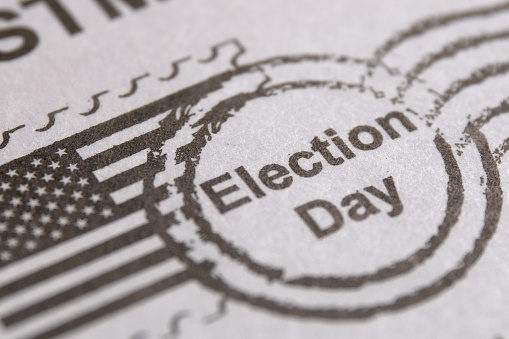The U.S. Supreme Court ruled that Wisconsin voters won’t get any extra time to vote in this election, despite the threat posed by the Covid-19 pandemic and a push by state Democrats to extend the deadline for counting mail-in ballots.
The decision appears to increase the likelihood of an election night cliffhanger in the key battleground state.
The ruling, announced Monday night, came on a 5-3 vote, “with the Republican-nominated conservatives in the majority and the Democratic-nominated liberals in dissent,” reported the Washington Post.
“The court’s order showed the deep division within the court about the series of pandemic-related election cases that have come to dominate its agenda.”
The ruling was a victory for Republicans because it’s likely to have a greater impact on Biden supporters who are more inclined to vote by mail than Trump backers. Trump narrowly won Wisconsin in 2016 by fewer than 23,000 votes.
The question of extending the Nov. 3 deadline established by the Republican-controlled state legislature had ping-ponged its way through a series of lower courts before reaching the top barely a week before Election Day.
In an opinion siding with the high court’s conservatives, Justice Brett Kavanaugh wrote that the liberals’ position “seems to be rooted in a belief that federal judges know better than state legislators about how to run elections during a pandemic.”
Kavanaugh also quoted a prominent law professor’s caution that allowing the election to drag out could fuel claims of foul play, reports Politico.
“Late-arriving ballots open up one of the greatest risks of what might, in our era of hyperpolarized political parties and existential politics, destabilize the election result,” wrote NYU Law Professor Richard Pildes, adding that such a situation increases the risk “that the losing side will cry that the election has been stolen.”
Kavanaugh, appointed to the court by President Trump, “did not mention any prominent politicians already stoking such fears,” Politico noted. “But one is Trump himself.”
Liberal Justice Elena Kagan wrote a 12-page dissent, “arguing that the ruling threatens to disenfranchise Wisconsin voters,” says The Hill.
“Tens of thousands of Wisconsinites, through no fault of their own, may receive their mail ballots too late to return them by Election Day … [meaning] they must opt between braving the polls, with all the risk that entails, and losing their right to vote,” Kagan wrote.
The high court’s decision did not include the newest justice, Amy Coney Barrett, who was confirmed by the Senate on Monday, shortly after the ruling was announced.
Wisconsin Democrats say they’ll settle the matter at the polls.
“The most powerful rebuke to Republican judicial activism is to defeat Trump and elect Joe Biden and Kamala Harris in a landslide,” state Democratic Party Chairman Ben Wikler wrote in a statement after the high court’s ruling.



